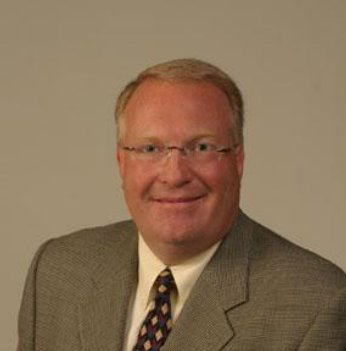
Larry McAnarney
815-703-4745
Reverse Mortgage Disadvantages
Potential Reverse Mortgage Disadvantages
In spite of the growing number of reverse mortgages each year, there may be hidden reverse mortgage dangers, so it's not right for everyone. It should not be the first choice for some retirees. It should be considered at length, as there are potential reverse mortgage dangers to consider. Some of the these concerns though, are completely unfounded:
Reverse Mortgage Danger - The bank will own my home.
Reality - You retain the title to your home. The bank holds a lien, just like a regular mortgage.
Reverse Mortgage Danger - My heirs will owe the bank.
Reality - The reverse mortgage is a non-recourse loan, meaning that the lender can not "come after" anyone if the loan balance is higher than the value of the home. Besides, the loan is insured by the FHA, so you will never owe more than the home is worth.
Reverse Mortgage Danger - I have to own my home free and clear to be eligible.
Reality - You do not have to own your home outright to get a reverse mortgage. Many people secure the reverse mortgage to pay off the existing mortgage, and be free from that payment.
Now that we have cleared up the misconceptions, what are the real dangers of a reverse mortgage?
Reverse mortgage fees are too high
Some reverse mortgage HECM Standard programs have fees are greater than that of a "forward" mortgages, but in October 2010 HUD introduced the HECM Saver which greatly reduced closing costs to that of conventional mortgages. The product is insured by the FHA, guaranteeing that you will never owe more than the home is worth. That's quite an assurance! Let's say that you borrow the maximum available at age 70, choose the monthly payment option, and then you live another 30 years. You will come out way ahead, and you will never owe more than the value of the home, no matter how much you have been paid over the years. Some see the fees as a deterrent, but when spread out over time they become fairly inconsequential. In the example above, you get to live in your home for 30 years collecting money that you personally will never pay back. Not a bad deal! The real danger of reverse mortgages is in moving quickly, after obtaining the mortgage. As an example, the danger might be if you were to become very ill, and were permanently incapacitated shortly after taking out the loan, forcing you to sell the home. Let's say that had to sell because, as a result of your illness you needed to move permanently into a nursing home. In this situation then the fees would outway the advantages of the loan. If you are in resonably good health, no need to worry. If you are certain that you will remain in your home for several years, then the reverse mortgage might be for you.
.There there will be nothing left for my heirs.
Another common concern, and potential danger of a reverse mortgage, is that there there will be nothing left of the homes equity to leave as an inheritance for the children or other heirs. This can be a danger, or at least a disadvantage, as it sometimes occurs. More often though, the homes appreciation covers the interest. Since the maximum you can borrow is 78% of the current appraised value, there is usually some equity available at the time of pay off. An important note to consider here is that most children support the notion of their parents getting a reverse mortgage. They would rather see their parents live financially comfortable instead of struggling.
The biggest reverse mortgage danger is the recipient of all this money, and going spend crazy. The reverse mortgage should be viewed as a safety net, and spending should be limited to needs (and only a few "wants.") To circumvent the danger of excess spending, we recommend getting a line of credit, instead of a lump sum disbursement. The value of this is that you are only charged interest on the amount you actually use, the rest of the money actually grows. Most borrowers opt for a line of credit for these reasons.
This information is updated regularly, and has been provided to you by Senior Reverse Mortgage Online. We strive to provide useful reverse mortgage information and other resources. We have also created the HECM Loan Blog to answer questions from or web visitors. To learn more about the dangers of reverse mortgages, or to find out if a reverse mortgage might be right for you, you can get your free reverse mortgage quote right from our website.